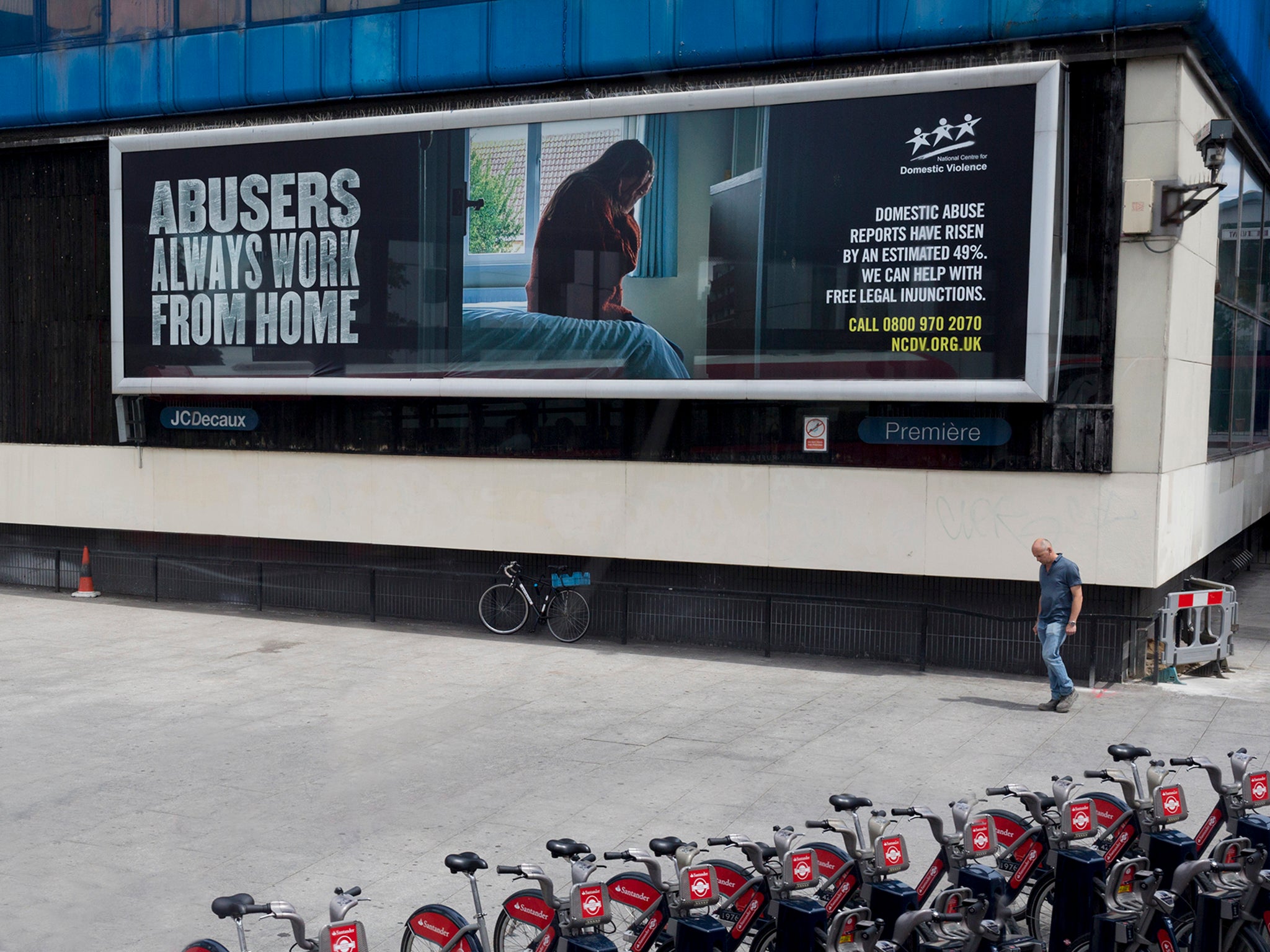Abuse victims at risk as ‘outdated’ system leaves up to 13 per cent of restraining orders unserved
Exclusive: The pandemic made it easier to serve restraining orders because of a relaxation in the rules, but experts say courts are going ‘backwards’ since lockdown started easing, reports Maya Oppenheim


Domestic abuse victims are being placed at risk by an “outdated” system in which some restraining orders are not being served, experts have warned.
Figures seen by The Independent from the National Centre for Domestic Violence (NCDV) reveal that up to 13 per cent of orders issued through civil courts were not served on perpetrators in 2019.
Longstanding rules require so-called ‘non-molestation orders’ to be served to abusive partners in person – an often dangerous task usually undertaken by former police officers working for the courts.
A temporary relaxation during the pandemic allowed courts to deliver the orders by phone, WhatsApp or email, leading to a dramatic improvement in the numbers being served. The proportion of unserved or undelivered orders fell from 1,093 out of of 8,364 in 2019 (13 per cent) to 726 out of 13,038 in 2020 (5 per cent).
But Mark Groves, chief executive of the NCDV, says the end of lockdown means victims are being told orders must once again be served in person.
“They are wanting to go back to the old way,” he told The Independent. “But you can serve them perfectly well by electronic methods. We have seen over the last year, it works. What I don’t want to do is go backwards.”
Non-molestation orders, which can last up to a lifetime, often restrict where abusers can go or whom they can approach, and can be used to prevent a partner or ex-partner from using or threatening violence against a victim or their child.
Mr Groves, whose organisation provides free emergency injunctions for abuse survivors, welcomed the fact that more orders had been correctly served during the temporary change in rules.
As well as serving orders more quickly, employees have been able to talk to perpetrators on the phone to explain the restriction.
“It has made our job easier,” he said. “It is much faster to get the job done. It is giving the victims protection instantly. When we serve electronically it is almost instant rather than [taking] days.”
Courts are “hampered by outdated guidelines from the Family Justice Council,” added Mr Groves. “Their guidelines were written in 2011 and need updating. Their guidance is to serve the orders personally.”
He said those serving court orders in person were often subjected to threats or acts of violence.
“Somebody had a beer bottle hurled at his car,” he said. “It smashed his rear window. Sometimes ex-police officers don’t want to serve the order as they know the person.”
Paul Rumsey, who has been serving such orders for 14 years, told The Independent domestic abusers sometimes take their frustration out on the person who has handed the order to them.
He said: “I’ve had people try to run me down. I’ve been threatened quite a lot of times with knives.
“I am more scared after the event than before. To think back on what you have been through and what could have happened. Some slam the phone down. Some say, ‘I'm going to find you and find out where you live.’”
Mr Rumsey, an ex-police officer from Kent, added: “It is like throwing a grenade into a house. You throw it in there and walk away. Once you have served papers, I always phone the victim to tell them the papers have been served. So they are aware of what could and what could not happen.”
He said his role had got much easier since the pandemic hit and he could serve orders electronically, adding that this method is also preferable as it provides a “paper trail” of evidence if the abuser decides to falsely claim he was never alerted to the order.
Mr Rumsey said: “Without disrespecting them, judges live in the past a bit. Personal service is not the best way to do it. We have moved on. Life is not like that any more. The electronic age is here. There is no danger in that. You are not facing somebody. It is so much easier.”
Many domestic abuse victims take action against abusers through the civil courts rather than the criminal system because it is a less distressing and less protracted process.
Sharon Bryan, a domestic abuse survivor who is in a senior role at the NCDV, said: “When you do it personally, the perpetrator can evade that service. They can [refuse to] answer the door if they have any inkling of what is going to happen.”
Domestic abuse has increased during the pandemic, and helplines have recorded a steep surge in victims reaching out for support. Last May, it emerged that calls to the UK’s National Domestic Abuse Helpline had risen by 66 per cent, and that visits to the corresponding website had increased tenfold since the country went into a national lockdown.
Responding to the criticism, a spokesperson for the Ministry of Justice said: “Courts still have the same discretion as they did last year. The measures were part of a pilot that is still running, and the changes will be made permanent this year.”
But Mr Groves argued the pilot scheme does not go far enough because it does not explicitly say it is acceptable to serve court orders electronically, or explain how the procedure should be carried out.
He added: “The wording in the pilot scheme is vague, and we were never informed of a pilot scheme, and still haven't been, despite working with the Ministry of Justice.
“It is in the hands of judges whether or not they accept orders being served electronically in each individual case. It is difficult at the moment as everything is decided on a case-by-case basis, and judges have such different attitudes on what they think is an appropriate way of serving the order.”
Anyone who requires help or support can contact the National Domestic Abuse Helpline which is open 24/7 365 days per year on 0808 2000 247 or via their website nationaldahelpline.org.uk
Join our commenting forum
Join thought-provoking conversations, follow other Independent readers and see their replies
Comments


Bookmark popover
Removed from bookmarks